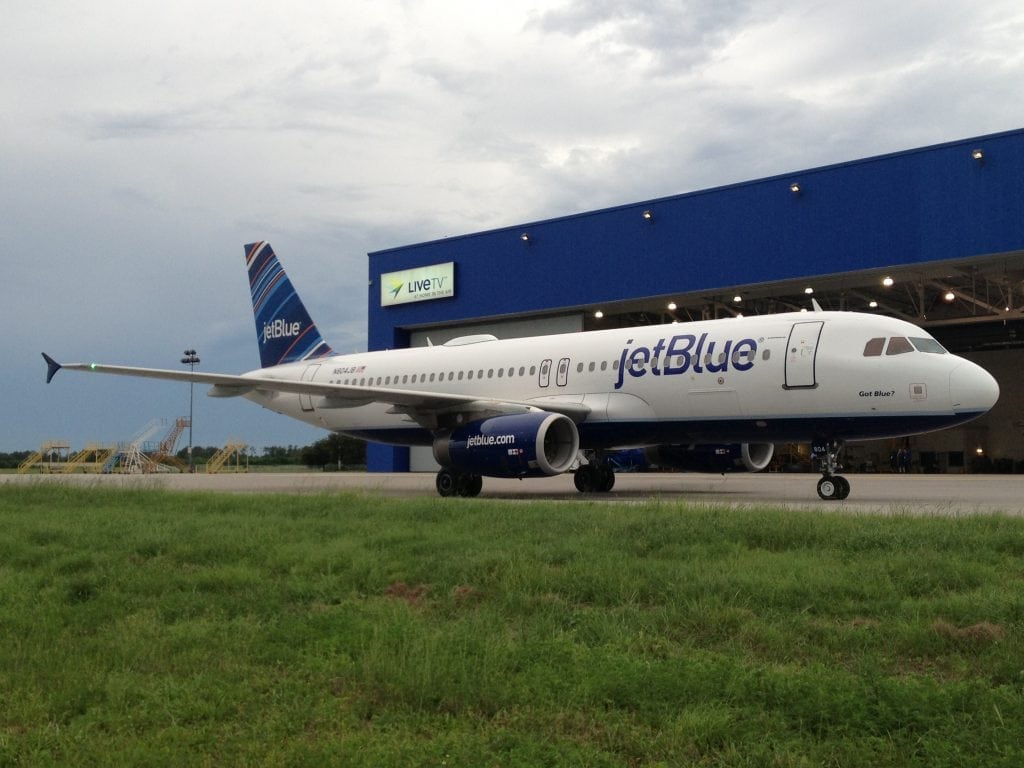
JetBlue Airbus A320.
The chief executives (CEOs) of EasyJet and JetBlue see major potential in using new technologies and concepts such as artificial intelligence and blockchain to make their organizations increasingly data driven. Both airlines are also building up their data science teams, according to presentations given by the CEOs of the two low cost carriers at the 2018 Aviation Festival in London last week.
EasyJet is one of the world’s leading low-cost airlines, and its CEO Johan Lundgren mentioned that the airline aims to be the leading data-driven airline in the world. He also pointed to the fact that airlines could use Amazon as a great example of how to use data effectively.
While easyJet is still deciding whether to use satellite or other technologies for in-flight connectivity (IFC), it is clear that airlines will increasingly use connectivity services. “We believe data science will be at the core of our airline. We need to find out what the new technology is. Artificial Intelligence (AI) is about the automated experience. It will be key.”
For airlines, generating ancillary revenues is vital. However, Lundgren pointed to the fact that airlines often go about this the wrong way. “The goal of offering a hotel to someone who has flown to the same location 20 times and never booked a hotel with us is probably not a good idea,” he said.
EasyJet is also evaluating the possibility of loyalty programs and looking for ways it can reward customers. “Loyalty programs absolutely fit in. Every company needs something where you reward your customers. I think for us, it is to find ways that are the easyJet way. We need to bring something that has clear benefits for customers. We can certainly do much more before we look at crypto currencies (in this way),” Lundgren said.
One of the other main speakers was Robin Hayes, CEO of JetBlue, a company that has been known for its IFC strategy and has worked with the likes of Viasat to bring a premium IFC service to customers. While JetBlue is mainly known for flying routes across the east coast of the U.S., the possibility of it becoming a transatlantic long-haul airline seems to be an intriguing possibility. “When we look at Europe, the business class fares are obscene. We can do it for a lot cheaper. What it could be? I think we could do something better than we do in the U.S. We have 85 NEOs on order. We have the ability to upgrade those to long-range versions if we want. There is a notice period if we want to upgrade. We haven’t taken a final decision on whether we will [expand internationally],” he said.
Hayes said it is key for airlines like JetBlue to try and transform the buying experience for customers, as it does with its Digital 2020 project. The company also invests significantly in technology. “We set up another subsidiary of JetBlue called Tech Ventures. We are investing in companies that are of interest. A lot of people are hiring data scientists. Does blockchain have a role to play in loyalty programs, for example? We have so much data. How do we take that and use it in an appropriate way? What is a data lake? We are at the beginning of that. We have built up our data science teams. It is still very early on.”
Read the full story as published on Via Satellite, a sister publication to Avionics.